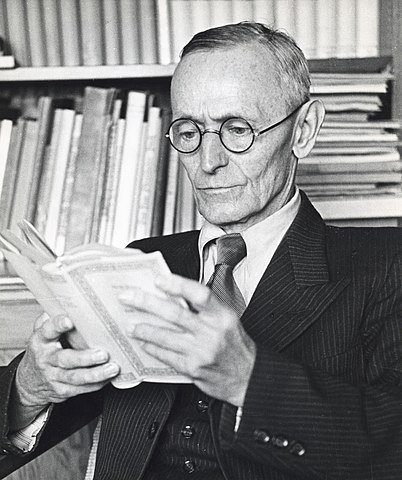Why was Hermann Hesse Awarded the Nobel Prize for Literature in 1946?
Hermann Hesse: Unraveling the Nobel Prize-Winning Literary Visionary
Hermann Hesse: The Nobel Laureate of Introspection and Spiritual Journey
In 1946, the esteemed Nobel Prize for Literature was awarded to the German-Swiss author Hermann Hesse, recognizing his profound impact on the world of literature. Hesse’s works delved into the complexities of the human psyche, spirituality, and self-discovery, captivating readers with their introspective depth.

1. Literary Ingenuity and Artistic Excellence:
Hermann Hesse’s literary ingenuity played a pivotal role in his Nobel Prize recognition. With an exceptional command of language and narrative, Hesse crafted intricate stories that touched the depths of the human soul. His novels and essays demonstrated a keen understanding of the complexities of human nature and the quest for meaning. Hesse’s ability to evoke profound emotions and his distinct literary voice set him apart as a prominent figure in world literature.
2. Exploration of Philosophical and Spiritual Themes:
One of the defining features of Hermann Hesse’s works was his exploration of philosophical and spiritual themes. His writings often delved into the search for inner truth, self-discovery, and the pursuit of personal fulfillment. Hesse’s profound insights into the human condition resonated with readers across cultures, providing them with a sense of introspection and self-awareness. His novels, such as “Siddhartha” and “Steppenwolf,” served as spiritual guides, guiding readers on a transformative journey of the soul.
3. Portrayal of Humanity’s Spiritual Crisis:
In the aftermath of World War I and during the tumultuous years leading up to World War II, Hermann Hesse’s works reflected humanity’s spiritual crisis and the yearning for a deeper understanding of life. His novels often depicted characters struggling with existential questions, searching for meaning amidst a rapidly changing world. Hesse’s ability to capture the zeitgeist of his time while addressing timeless human dilemmas earned him admiration and acclaim from both critics and readers.
4. International Appeal and Cultural Impact:
Hermann Hesse’s writings held universal appeal and transcended national boundaries. Translations of his works brought his profound wisdom to audiences around the world, contributing to his international recognition. The Nobel Prize committee acknowledged Hesse’s ability to bridge cultural divides and communicate fundamental human experiences, reaffirming his significance as a literary luminary.
5. Contribution to German Literature and Language:
As a German-Swiss author, Hermann Hesse contributed significantly to the enrichment of German literature and language. His literary achievements brought prominence to German-speaking writers on the global stage. By exploring themes that were both deeply rooted in German intellectual tradition and universally relevant, Hesse solidified his place as an eminent figure in the canon of German literature.
Hermann Hesse’s Nobel Prize for Literature in 1946 was a testament to his literary brilliance, spiritual insights, and profound impact on readers worldwide. Through his introspective narratives, he invited readers on a transformative journey of self-discovery, making his works timeless guides for navigating the complexities of life. Hesse’s contributions to literature and his exploration of philosophical and spiritual themes continue to inspire and resonate with readers, reinforcing the enduring power of literature to illuminate the human condition.




